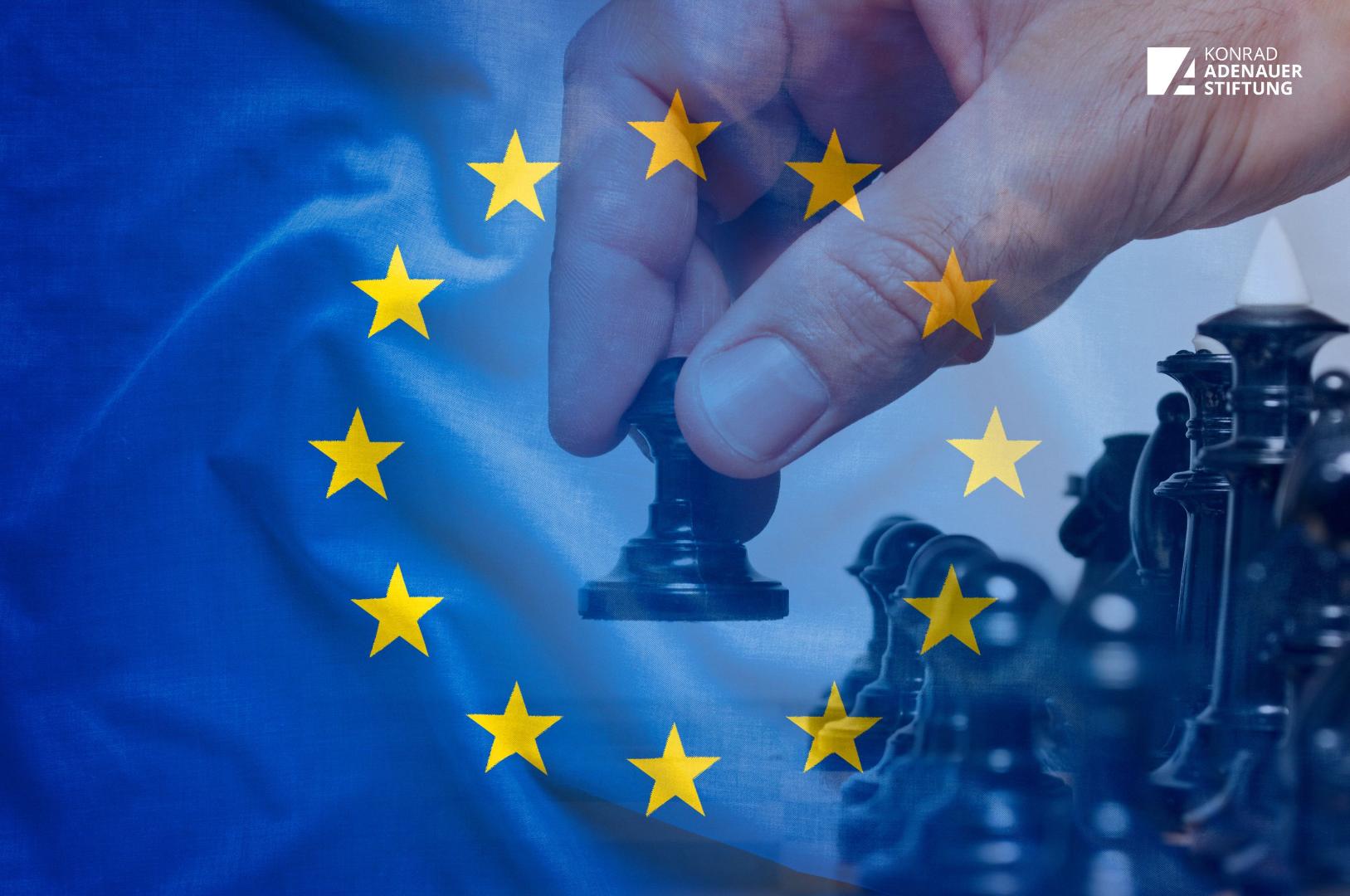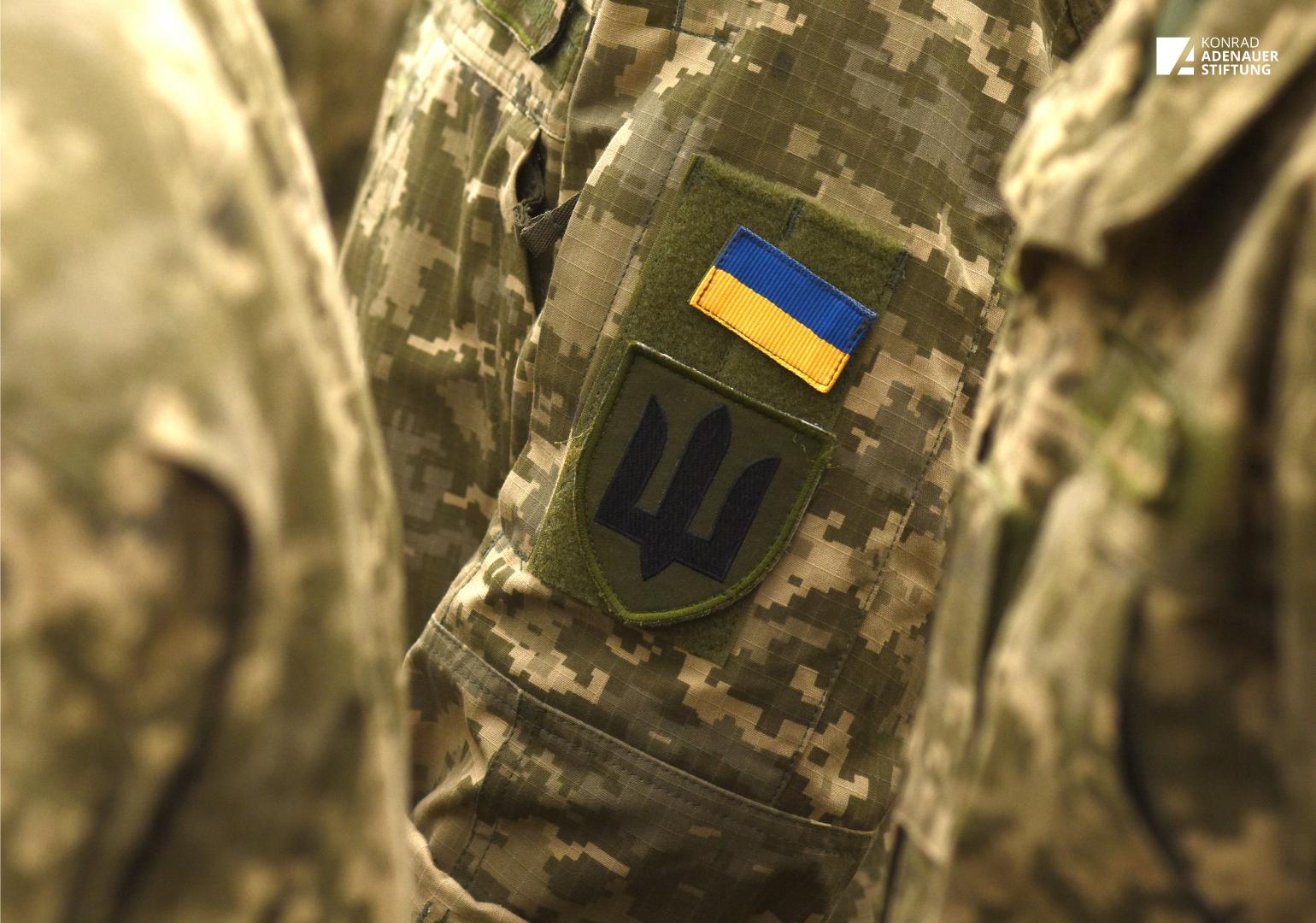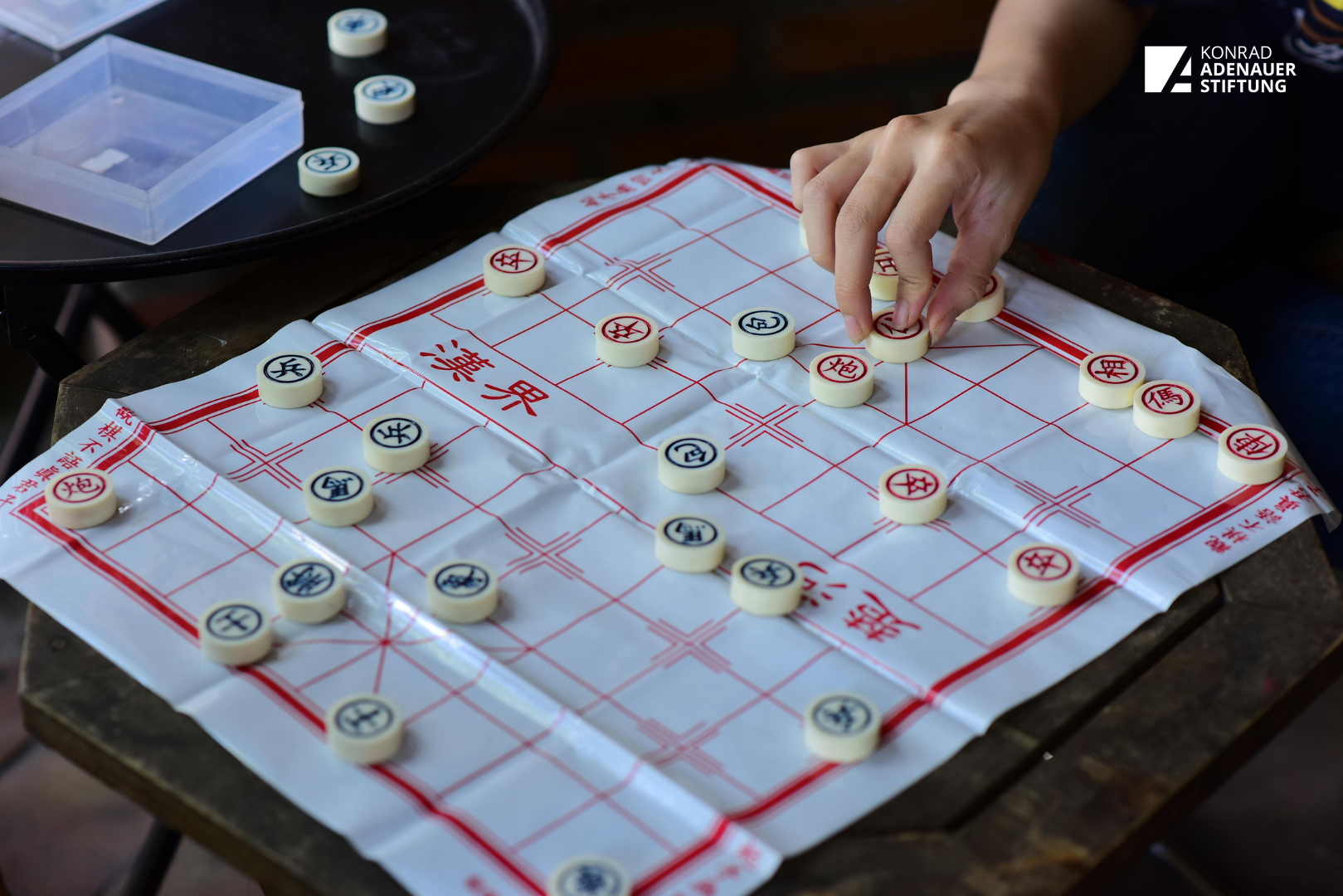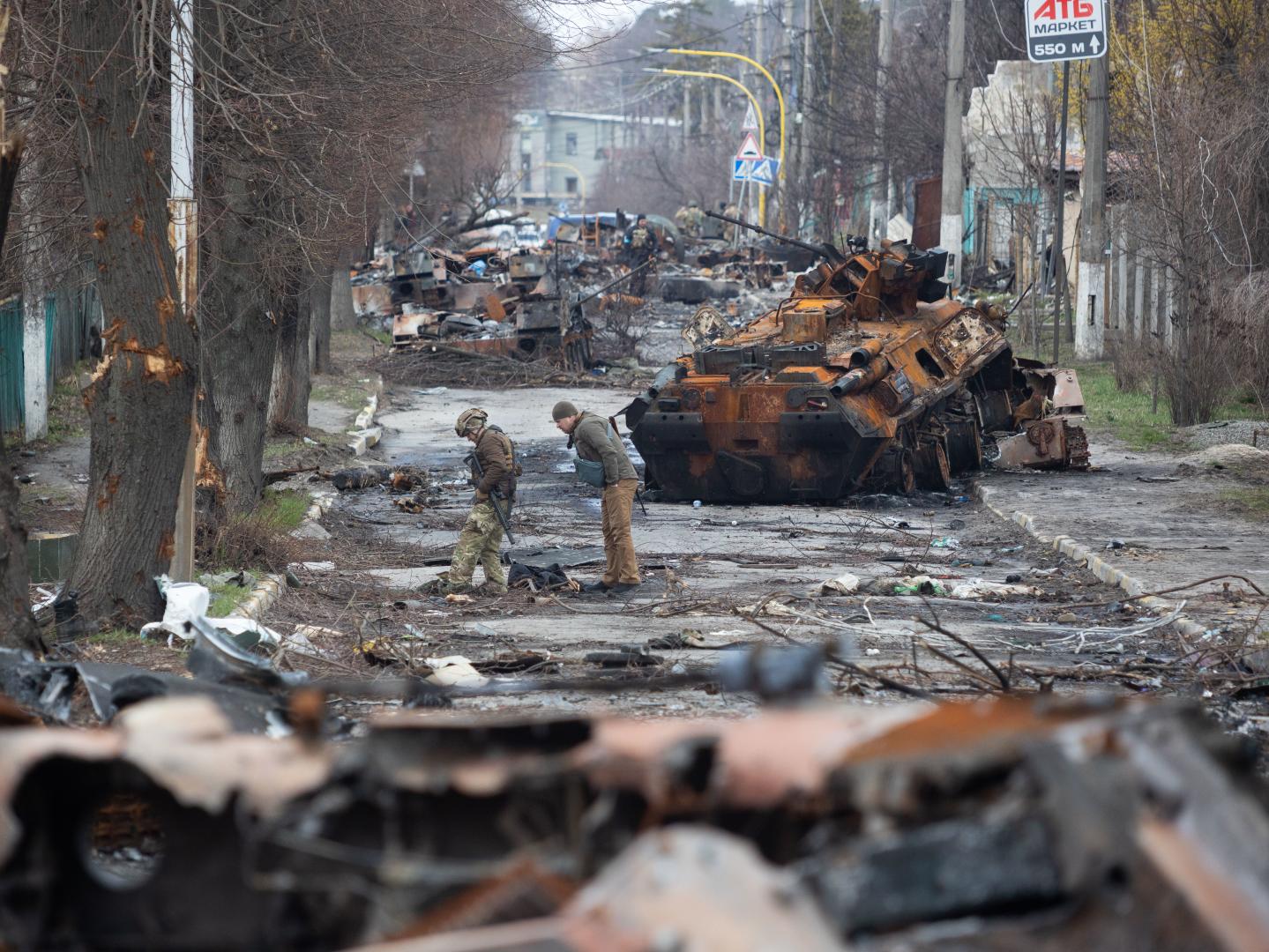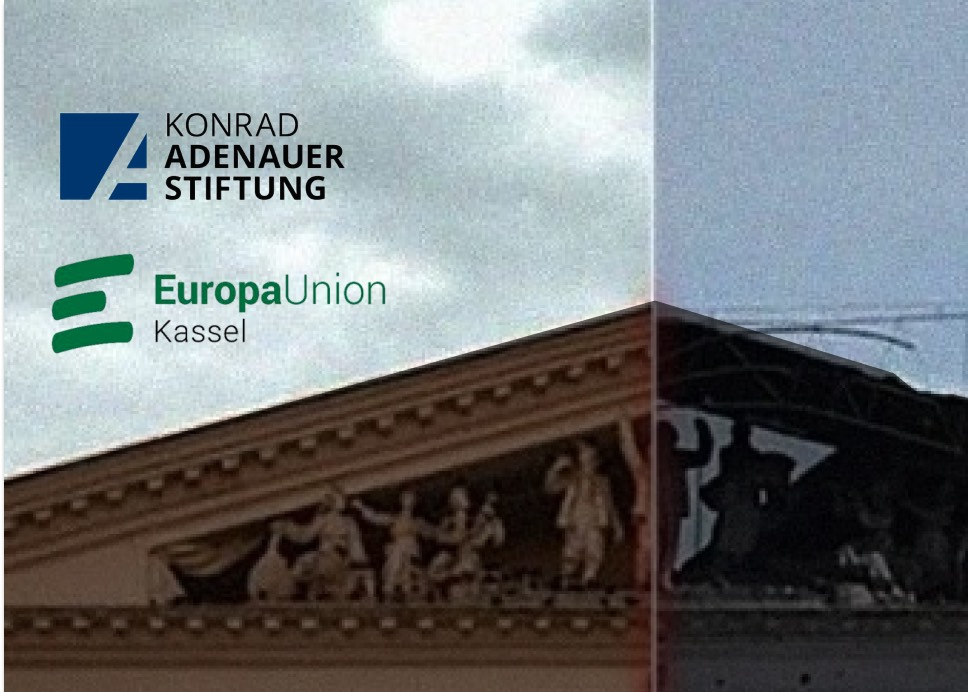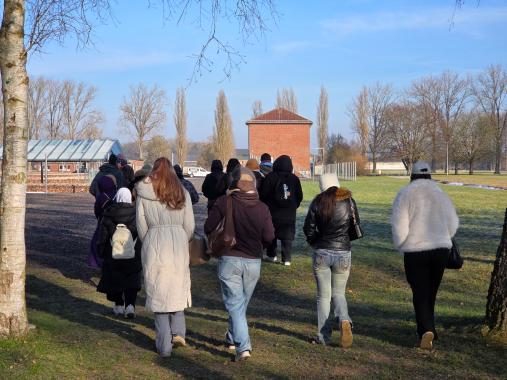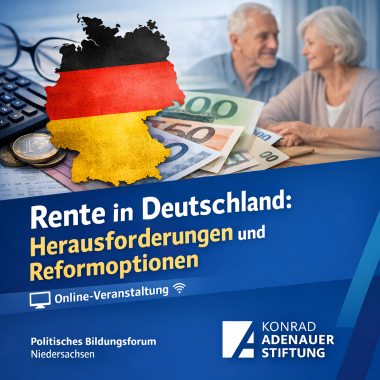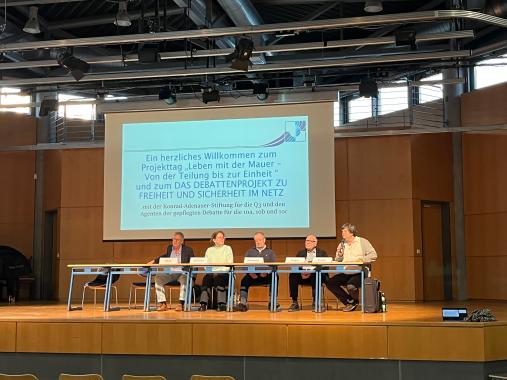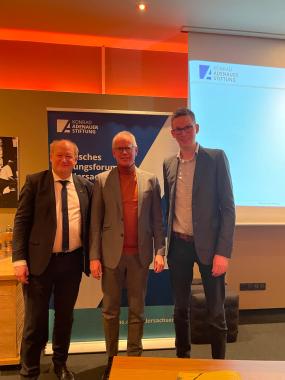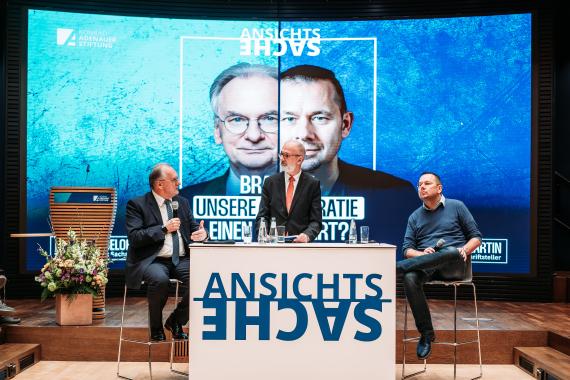Welcome
Our democracy cannot function without the participation of its citizens. “Democracy thrives on participation” is and remains the guiding principle for our political education work.
The Konrad-Adenauer-Stiftung's civic education is represented by 18 offices in Germany, which welcome you to a wide range of events at over 400 locations and in the digital space. In addition, you will find exciting content in the field of civic education all year round on the Adenauer Campus learning platform.
We look forward to meeting you in person.




